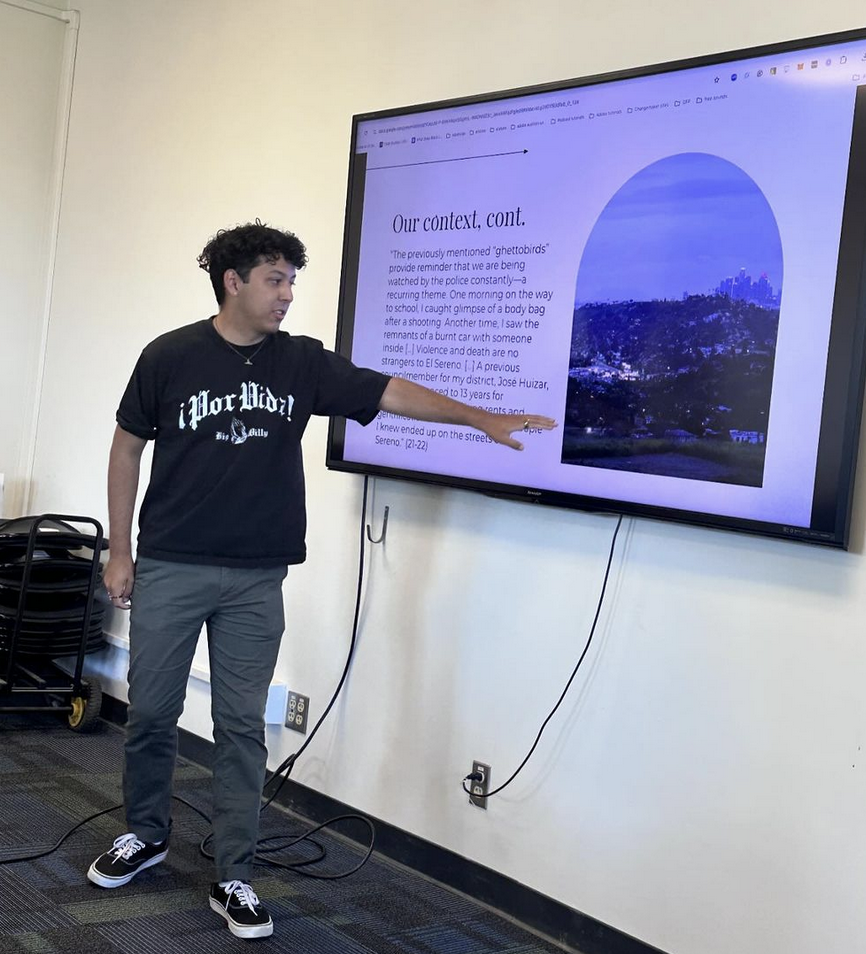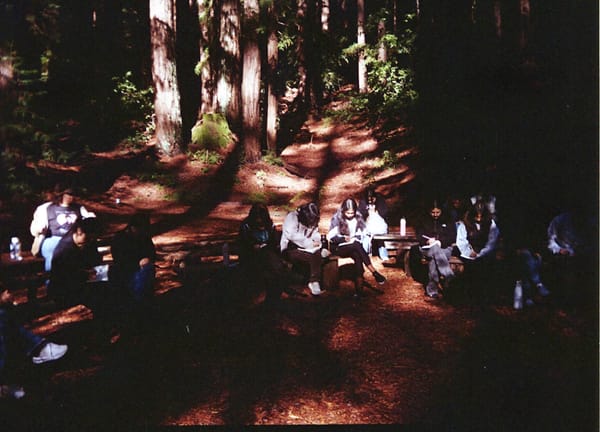"Resisting Algorithmic Oppression" - My Briefing
Introductions to texts often happen before you get your hands on them—think of the friend who told you in a casual conversation about a book to read and why you should read it. This is my introduction to "Resisting Algorithmic Oppression," a thesis for the UC Berkeley Latinx Studies program.

I've always liked preparations for texts. Introductions to texts often happen before you get your hands on them—think of the friend who told you in a casual conversation about a book to read and why you should read it. Recently, research presentations and lectures have been my introductions to texts. Other times, I've been sat down and explained the context and motivation for a text. It's usually very nice, although there are times when it isn't. If you don't feel as though you need one, feel free to skip ahead to the full text.
Before linking the thesis I worked on during my last year of undergrad, I want to do the same. I've given presentations and introductions to my own work before, but if you weren't there for it, I don't want you to miss out.
This work was written primarily for two audiences: the Latinx Studies program at UC Berkeley and the collectives that make up the work. The Latinx Studies program is filled with amazing people doing amazing work. I am honored to call them my colleagues and friends. I have been taught a lot, both formally and informally, about how to learn and grow. They are the permeating background of my work and enabled me to do this work in a way that feels authentic to me. In the work, you'll learn more about the collectives, but for now it's important to place this work in its proper context.
I have worked and am working in the technology industry. As my advisor, Professor Pablo Gonzalez, would point out: different vantage points give you different perspectives. I have been able to take on the vantage point of the software engineer and the Computer Science major. We are at a very peculiar point in time, where algorithms are becoming ever-present in our lives. From social media to fraud detection to ChatGPT, algorithms are shaping society and culture. If I had more time, there's a lot more I would add to my 'Theoretical Frameworks' section on this. For now the important question to keep in the back of your mind is: how are these technologies affecting us? This thesis looks at social media platforms in particular, but should be extended to other technologies.
There is a growing body of formal scholarship around technology's influence in our daily lives that I'm glad I was able to contribute to. Beyond the formal scholarship, it's important to recognize that we all experience and think about technology in our daily lives (whether conscious or not). These informal thoughts, discussions, feelings and theories are what makes up this thesis. I argue that this should be centered in our discussions more frequently: academia is a great place to explore these topics, but like 99% of people are barred from accessing or contributing.
Realistically, I couldn't talk about everything. There's a lot left out in my thesis, but it is a snapshot in time of a community that is learning how to use and deal with social media. I will say that we (and I mean we) are not happy with the current state of affairs. There is a lot left to be desired, and the hope for my work is that it gets us thinking about how to get to that desired state. There is some written about that, but not nearly enough. I hope we can continue to be in conversation about this.
Here's the download of the text!
If you enjoy the read, consider subscribing to my blog. I'll be posting more soon.




